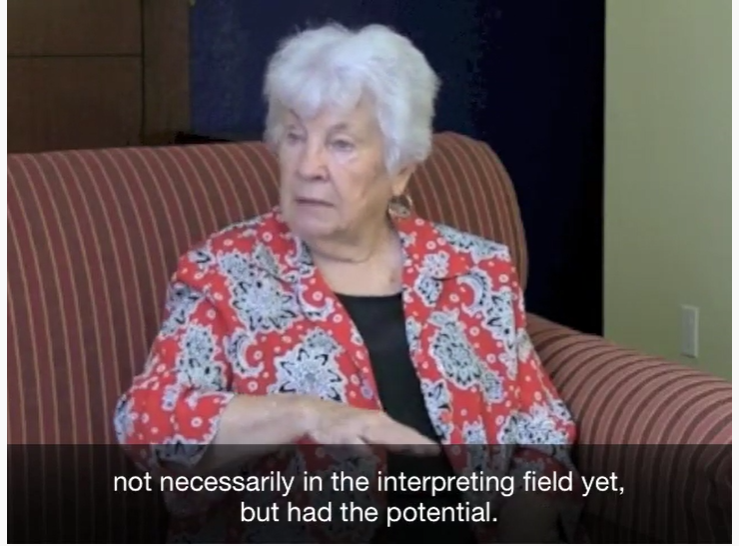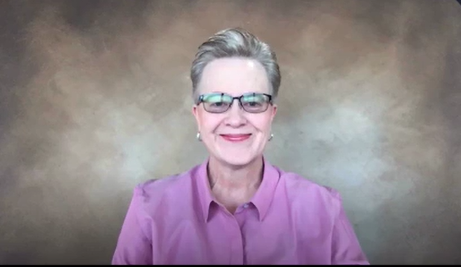Virginia Lee Hughes, a child of Deaf parents, was born in Fulton, Missouri. In California, she was a pioneer in interpreting, coordinator of interpreters, and as an interpreter educator.
Following is an excerpt from our publication Legacies and Legends: History of Interpreter Education from 1800 to the 21st Century by Dr. Carolyn Ball.
IN THE BEGINNING
Virginia Lee Hughes
Growing up in a Deaf family, I was not aware that my environment was different. I was the youngest of four children, and mom and dad used their voices and signed to each other. My father taught at the School for the Deaf for many years. During World War II, mom became an instructor because instructors were hard to come by.
The town of Fulton, Missouri had a tremendous Deaf population, both adults and younger people, so it was a little more sensitive than the average locale. Deaf students wore school uniforms, and the population was aware of Deafness. The average clerk in the store was aware of Deafness, and maybe even used signs to a degree. The town itself did not do anything about instructing sign language interpreting for many years, even though it had the right population and the openness.
My awareness of Deafness as different did not occur until I worked in St. Louis in the telephone business. We had a friend there who was a Deaf Episcopal minister, and when the family would visit, we would stay at Reverend Steinman’s home. Being Deaf himself, he did not use his voice. His wife was a beautiful signer, so I saw Deaf people outside my area, and I went to his church once or twice.
When my mother learned that I was going to Los Angeles to become an interpreter, she did not understand it. She felt the world of Deafness was not the same as the world of hearing: “Why would you ever cross the barrier? It is not your culture.”
Excerpt from Legacies and Legends, p. 18.
Clip from a Personal Interview with Virginia Lee Hughes.
“Thursday Nights”
29 July, 2012.



